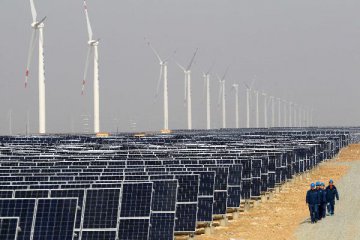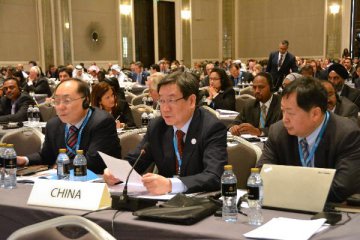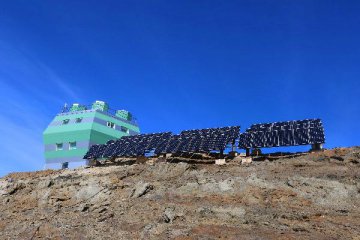Latin America's progress in developing renewable energy has opened up opportunities for technology partnership with China, said Latin American experts.
"Both sides (Latin America and China) are very interested in developing renewable energy, given the ambitious commitment made within the COP21 particularly," Erika Ortiz said in a recent interview with Xinhua.
Ortiz is an economist with the Mario Molina Center, an organization promoting public policies on energy and environment. At COP21, the United Nations sponsored a conference on climate change held in Paris late last year, and participants agreed that clean energy was a key element in fighting climate change, underlining the need to ensure the energy security beyond fossil fuels.
Victor Hugo Ventura, head of the energy and natural resource unit for the Economic Commission for Latin America and the Caribbean (ECLAC), said that the possibilities for collaboration between the region and China are growing as they face a common challenge. Joint investment in energy projects, such as solar and mini-hydro, would help bring electricity to some of Latin America's most rural areas, said Ventura.
In November 2012, the United Nations Environment Program (UNEP) published a report titled Zero Carbon Latin America, which says the region's renewable energy potential could power the entire world. Combining the wind, solar and hydro potential, the region could generate 93 petawatts per hour, which is five times the world's current energy demand, according to the report.
For its part, China is already a leading exporter of clean technologies, such as PV solar cells. The country is the largest producer of solar energy and the largest investor in clean energy, as part of its resolve to reduce coal consumption. China and Latin American countries should actively exchange know-how and technology in this field, Ortiz said, urging the region to make a clear commitment to renewable energies.
Meanwhile, joint research by China and Latin America could explore new areas, such as generating energy from waves, said Ventura, who called for the establishment of small, rural energy companies to further tap cooperation opportunities and develop the energy grid for specific regions.
"A rural energy company can be a driver for other services, including communication, cellphones, water and microloans. An energy company can be a seed for all manner of rural companies to provide services," Ventura said.























Latest comments